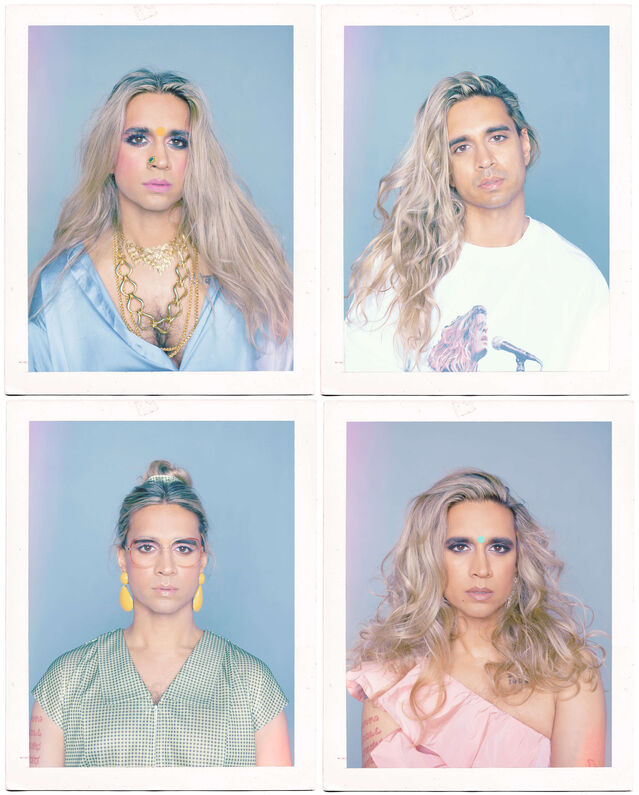Fear
Overcoming the Fear of Change
How artist and writer Vivek Shraya embraces change.
Posted January 19, 2022 Reviewed by Lybi Ma

Change has been a constant in Vivek Shraya’s life. An artist based in Calgary, Canada, Shraya has moved through music, visual art, film, and writing. Her interests have transformed over her 40 years, as has her identity; she came out as trans at 35. Shraya’s most recent project, a pithy and powerful memoir aptly titled People Change, explores the motivations, fears, and lessons of self-evolution.
Why do people tend to fear change?
I think change makes us feel imbalanced and unanchored. We like to get comfortable—such as in a friendship or romantic relationship—and we don’t want to be unnerved.
What’s an example of a significant change in your life?
I started as an artist and musician, and it was my dream to make it as a musician. Ten years in, it looked like it wasn’t happening. I could have kept going, beating my head against the wall. What I did instead was start being creative in other ways. I didn’t do it intentionally, saying, “I’m now going to be a poet or a theater artist.” I just needed to try something else. In that willingness to try, I started writing, and since then, I built a writing career.
That would have never happened if I was adamant about a single path. There’s something important about not being singularly focused, not saying, “This is the one path, the one person I’m going to love, the one person I’m going to be.” Anytime we choose the “one,” I think we rob ourselves of the opportunity for different experiences.
What changes have you navigated in relationships?
I separated from someone who is one of the greatest loves of my life. When we think of the reasons for separations, they’re often somewhat surface level, for example an affair, falling out of love, or moving to a different country. With me and my ex, it wasn’t that we didn’t love each other anymore. It was almost that we’d grown very comfortable with each other, and I had this desire for different kinds of experiences, to grow in different ways.
So often in any relationship, but certainly in romantic relationships, we get comfortable, and maybe that’s not always a good thing. It sounds weird to say as someone who is queer, trans, and brown—yes, I want to feel comfortable in the world, but I need that little bit of tension, of discomfort, that will challenge me and make me think differently.
How do you embrace change?
For me, the desire to change comes from a curiosity, an openness. Curiosity is a beautiful thing because even if you don’t know what it means, it can open a new world for you.
I remember hearing about transness in my 20s. But in my 30s, I became curious, and I just wanted to explore my femininity more. What would it mean to start wearing nail polish? That sounds superficial, but through gestures like that I built confidence, and then I was curious about more. Through curiosity, I ended up embracing a trans identity. Sometimes the thing about change is that you don’t have a path ahead of you. It’s not like: “I’m going to go from point A to point B.” Sometimes change is just about exploration.
What do you do when you’re feeling stuck?
Something I ask is: “Why can’t you make this change?” That question isn’t meant to be an exercise in beating yourself up; it’s more about understanding what it is about a certain behavior, pattern, or habit that keeps you returning to it. Many people say they want to write. Then they never write. Why? For me, it was hard to admit; I was scared. If I sat down and wrote, it wasn’t going to be great, or even good. What if nobody liked it? Once you know the real problem, you can actually address it.
In the book, you discuss the idea of not allowing change to disavow a past identity. What did you mean by that?
I think a lot of us are taught to get to the destination of our “true self.” The problem with landing on a true self is that everything you’ve been before then isn’t “true.” I don’t buy that. It sets up a dichotomy: Who you are now is somehow superior and better than who you were in the past. But how do you know who you’re going to be five years down the road? How can you say that the person in the present moment is your authentic self when you haven’t lived your whole life? I think we need to get past the language of authenticity because, for me, it’s more about the ways we’re works in progress.
Especially as someone who quote-on-quote came out at 35 as trans, I hate the narrative that now I’m my true self and before that I was just confused. So many things had to come together to embrace a trans identity—exposure, changing times, opportunities, and privileges that I did and didn’t have. I refuse to say I didn’t know who I was. I think we need a more nuanced perspective about what it means to be human, and to give ourselves more grace not just for the person you are but the person you’ve been and the person you will be.


